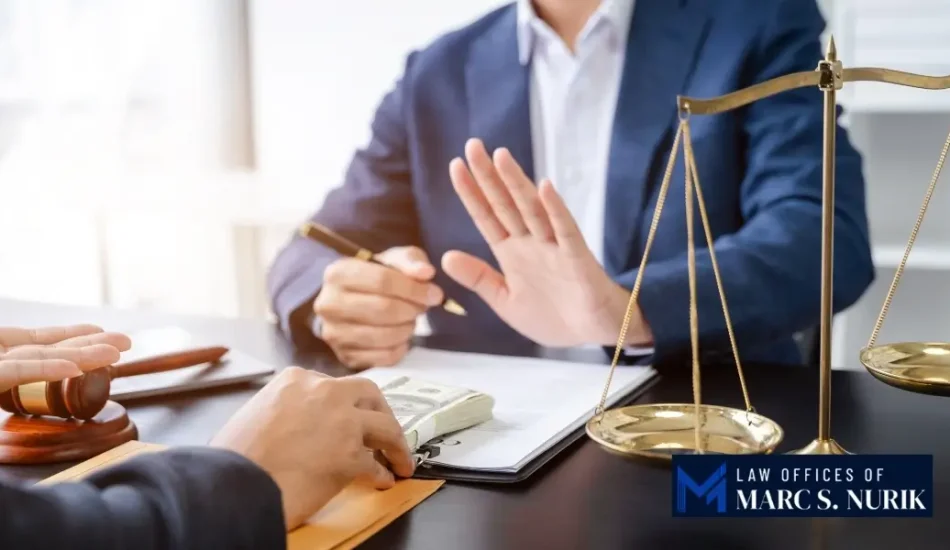Call Us Nationwide310-909-6828

Navigating the legal landscape of securities fraud can be complex, particularly when it comes to understanding the statute of limitations. It is important to understand the federal securities fraud statute of limitations and its implications. In the US, the statute of limitations for federal securities fraud is generally five years from the date of the alleged fraud under 29 U.S.C. § 2462.
In federal securities fraud cases, both plaintiffs and defendants must be aware of the specific deadlines imposed by law to ensure their rights are protected. Whether you’re an investor seeking redress or a financial professional facing allegations, having a clear understanding of these limits is essential for effectively managing your case.
Federal securities fraud refers to deceptive practices related to securities such as stocks, bonds, and other investment instruments that violate federal securities laws. It typically involves misleading or fraudulent activities aimed at investors or the market, and it is regulated primarily by the Securities Exchange Commission (SEC) under various federal statutes.
Federal securities fraud often involves making false statements or omissions of material facts that investors rely on when making investment decisions. This can include misleading financial statements, false disclosures, or deceptive marketing practices. It can also involve market manipulation schemes, such as artificially inflating stock prices or insider trading.
There are several laws that impact federal securities fraud, which include the Securities Exchange Act of 1934, Section 10(b) of the SEA and Rule 10b-5 of the Securities Exchange Act, The Securities Act of 1933, The Sarbanes-Oxley Act of 2002, the Dodd-Frank Wall Street Reform and Consumer Protection Act, and more.
Federal securities fraud can result in civil and criminal penalties. The SEC may impose fines, sanctions, or civil penalties, while criminal prosecution can lead to imprisonment and substantial fines. Overall, federal securities fraud laws aim to maintain the integrity and transparency of the financial markets, protect investors from deceitful practices, and ensure fair and honest trading.
The statute of limitations is a critical legal concept that sets the maximum time period within which a legal action can be initiated. It ensures that claims are brought while evidence is still fresh and witnesses’ memories are reliable. Over time, evidence can degrade, and witnesses may become unavailable, making it harder to resolve disputes fairly.
This timeline offers certainty and stability by setting clear time limits for filing legal claims. This helps individuals and organizations understand their legal rights and obligations and plan accordingly. It can protect defendants from facing legal actions after a significant period of time has passed, which could be unfair if they have had no opportunity to prepare a defense due to the passage of time.
The statute of limitations also encourages plaintiffs to act quickly, which can lead to faster resolutions and avoid prolonged disputes. This helps to maintain the integrity of the legal process and prevents stale claims. It balances the interests of both plaintiffs and defendants by ensuring that claims are brought within a reasonable timeframe, aligning with principles of fairness and justice.
The statute of limitations is essential for ensuring justice and fairness in legal proceedings by encouraging timely action and protecting the rights of all parties involved. For federal securities fraud, the statute of limitations is generally a five-year period from the date of the fraud, but each individual case is subject to legal consideration making it a necessity to take legal action as soon as possible.
The statute of limitations for federal fraud varies depending on the type of fraud and the specific federal statute under which the claim is brought. The different types of federal fraud that can have unique statutes of limitations are mail and wire fraud, bank fraud, securities fraud, and tax fraud. If a case is filed after this time limit passes, it will be considered invalid.
The statute of limitations Section 10b-5 is five years after the violation occurred and two years after it was discovered. Given the relatively short time frames and the complexities involved in these cases, it is crucial for investors to act promptly if they suspect fraud. Delays in filing a claim result in losing the right to seek legal recourse, so it is essential to take action as soon as possible.
Speak to a lawyer if you are unsure if you are within the statute of limitations for securities fraud.
Yes, securities fraud can be hard to prove due to its complexity and the specific elements that must be established. Securities fraud often involves intricate financial transactions and market activities, and fraud can be proven by a thorough understanding of financial analysts and forensic accountants. It must be shown that the defendant acted with fraudulent intention or knowledge, which means demonstrating that the defendant knowingly made false statements or engaged in deceptive practices.
A statute of limitations is a law that sets the maximum time period within which legal proceedings must be initiated after an alleged offense or civil wrong has occurred. This time frame varies depending on the type of crime or civil claim, and it serves several critical functions in the legal system. It encourages the timely prosecution of legal wrongs, brings fairness to defendants, promotes judicial efficiency, and more.
Understanding the statute of limitations for federal securities fraud is crucial for both plaintiffs and defendants navigating the complexities of financial litigation. Timely action is essential to preserving legal rights and pursuing justice. Whether you suspect you have been a victim of security fraud or are facing allegations yourself, consulting with an experienced attorney at the Law Offices of Marc S. Nurik can provide clarity and guidance. Reach out today.
4800 N. Federal Highway Suite 205B
Boca Raton, FL 33431
9350 Wilshire Blvd Suite 308
Beverly Hills, CA 90212